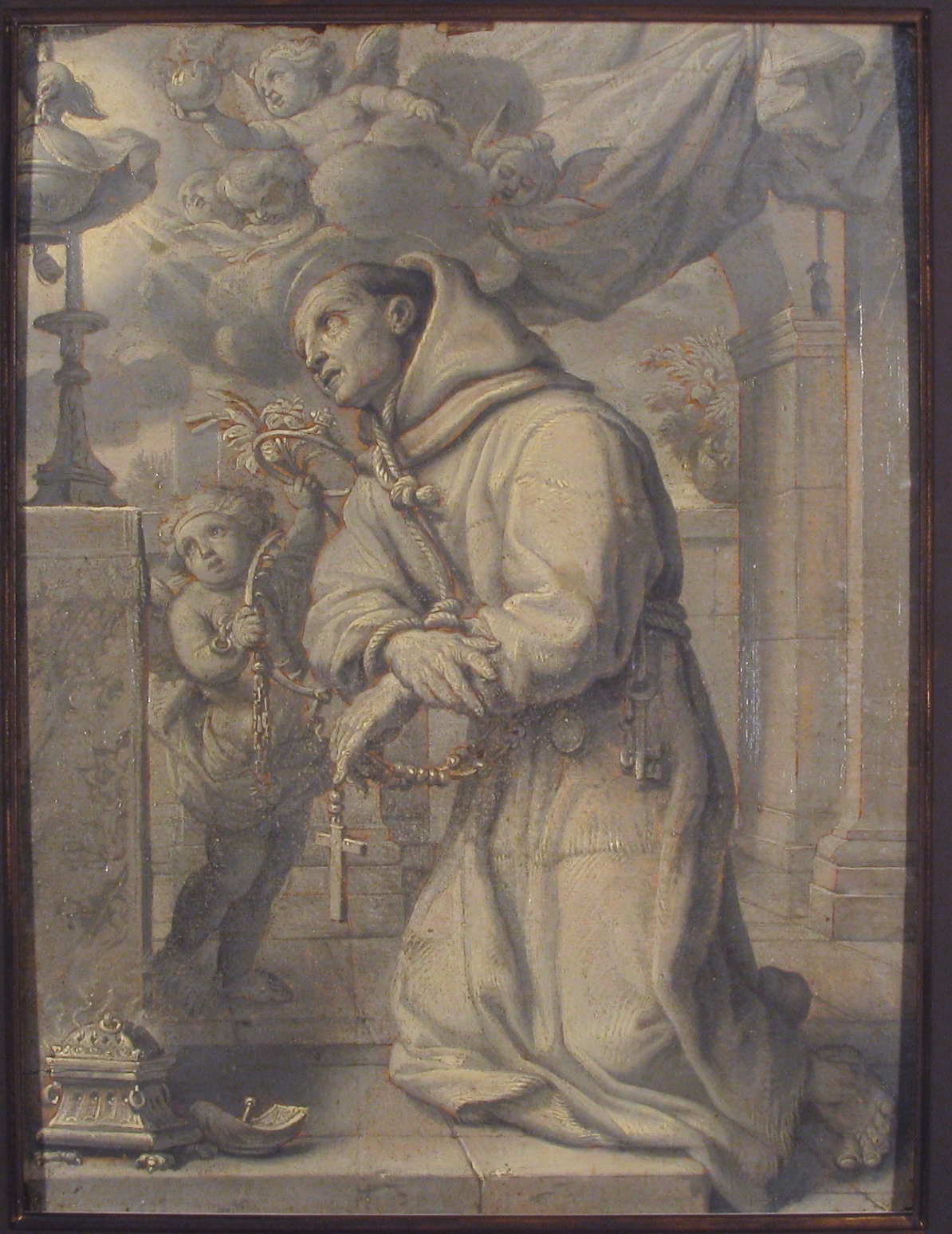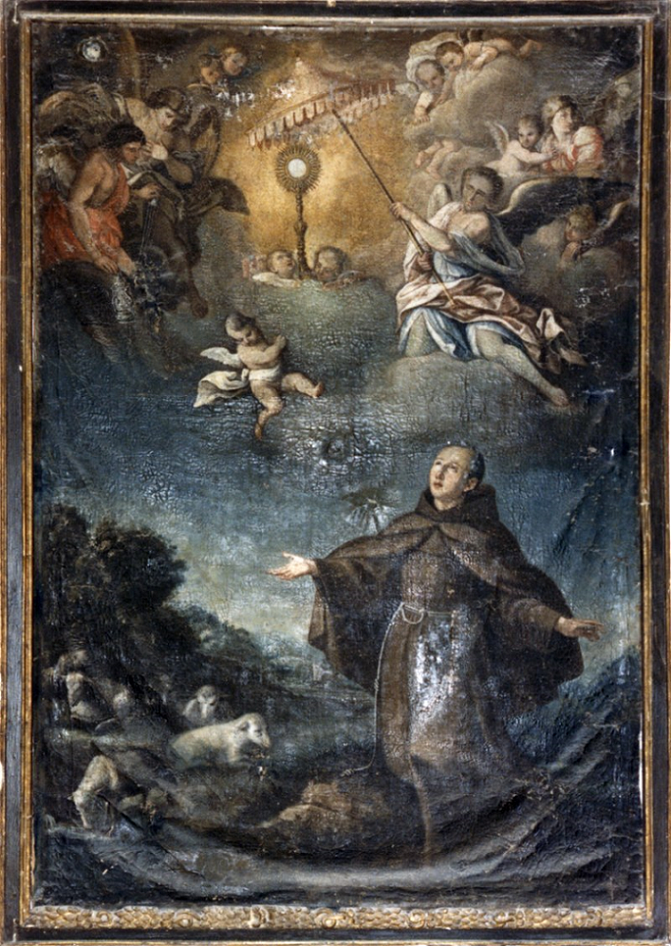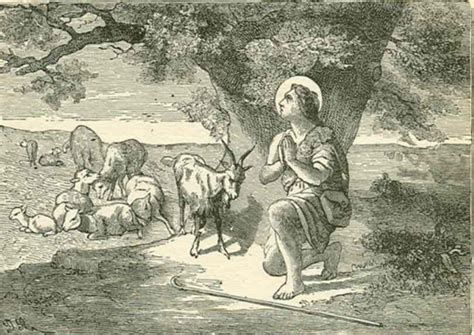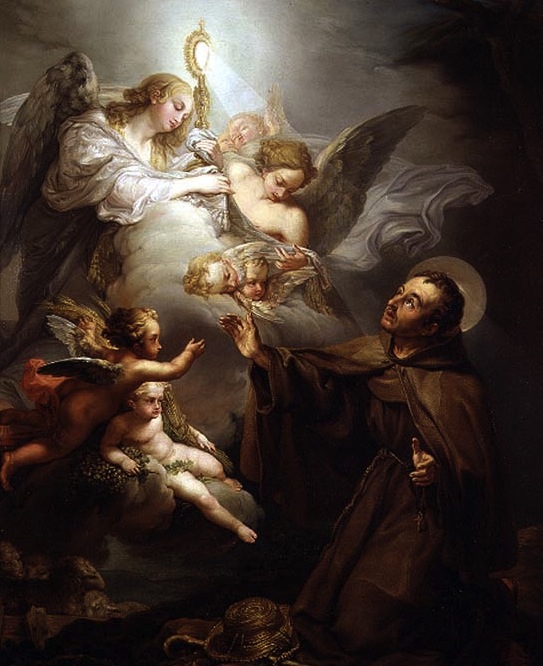“God is as really present in the consecrated Host as He is in the glory of Heaven.”
Pascal was born on May 12, 1540, in Torrehermosa, in the Kingdom of Aragon, on the Feast of the Pentecost. His parents, Martin and Elizabeth Jubera Baylon, were poor but pious peasants with a total of 3 children. It was local custom for a child to be named after the saint or feast day of which they are born and therefore he was named Pascal in honor of Pascua de Pentecosta.
From an early age he was a shepherd and spent long times in prayer while out in the lonely fields. His mother gave him a book of a liturgical devotion, called, “Little Office of the Blessed Virgin Mary” and he learned to read by asking people for help with words so that he could follow it.
With no other means to assist those with less than him, he gave away part of his dinner that was sent with him into the fields. Any damage that the sheep caused to farms or property, he paid for out of his own earnings.
His friends were inclined to cursing and fighting but held their tongues in his presence since they respected his pious nature, honesty, and virtue.
At 21, he joined the reformed Franciscans of St. Peter of Alcantara at Loreto. For years he served as porter and guestmaster with patience and good humor. At the age of 25 he made his profession.
One of his most notable events was his participation in the Eucharistic Congress of 1564. It was a gathering of Catholics from all over Spain who came together to celebrate the Eucharist and share their faith. He was a keynote speaker and is said to have performed many miracles during the event.
During the day he cheerfully gave himself to his tasks and attended to the poor and sick who came to the friary, but when he was free, he spent long hours in prayer before the Blessed Sacrament.
At the age of 36 he was sent to France to deliver letters to the General Minister of the Observant Franciscans. He had to pass through a territory of French Protestants who mocked and stoned him. He escaped, but suffered a severe shoulder injury as a result, which caused him pain for the rest of his life.
He gained the reputation of being a mystic, with ecstatic visions, but tried to deflect attention away from himself. Miraculous cures were reported throughout, increasing his popularity.
He fell ill and died on May 17, 1592, in his friar cell and his tomb became an immediate place of pilgrimage with many miracles reported.
“Since God desired greatly to give us what is good, in all your petition, believe firmly that God will grant you what you ask for. But do not ask for anything unless God has moved you to ask.”
He is the patron saint of the Eucharist, and the Eucharistic Congresses.
His feast day is May 17.
For God’s Glory.



